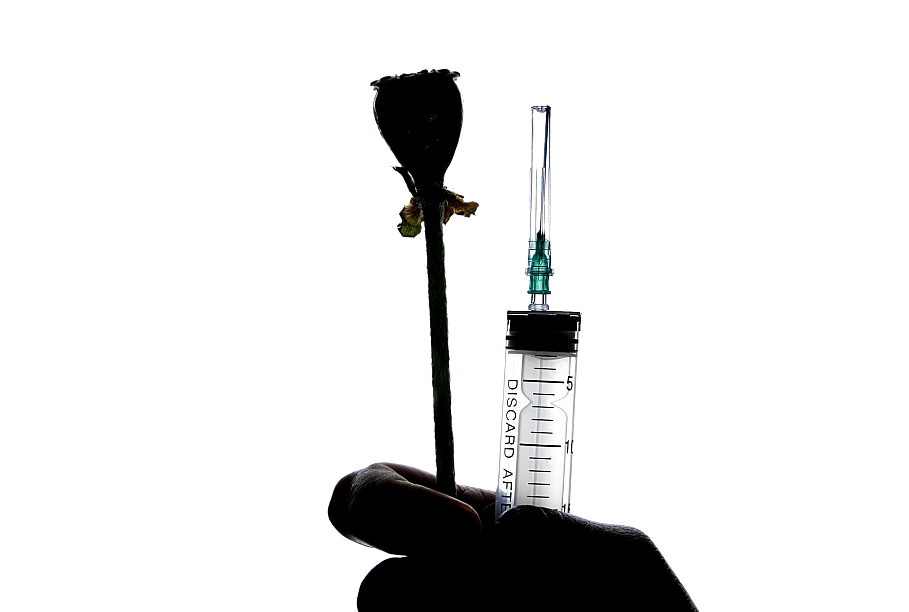Prisoners' health important for the whole society
The most widespread reason for the spread of disease among inmates is, according to doctors and other experts, drug use in prisons. There are plans to introduce additional screening of deliveries.
The problem is slow to be solved as there's a lack of funding for educating inmates about the risks, diagnosing diseases and treating them.
The condition of the prisoners' health is of importance to everyone as they often don't continue treatment when they get out.
Latvian Radio talked to Oļesya through the bars. She has been sick with tuberculosis for six months already. There are two more women in the room, and their coughing can be heard during the interview.
"It just so happened that I got sick, I don't know how. But I'm going to get checked for infectious diseases and I am undergoing treatment as I have two children at home. I have life with them ahead of me. I'll be raising them, after all, [..]" said Oļesya.
"We have a high infection risk here, especially in prison, in the zone where everyone is together and making contact. Of course we have monthly checks against tuberculosis, and if anything we get sent to the hospital," said Oļesya.
"While for hepatitis C and other diseases, the check ups are voluntary and many don't want to get tested. I think that they just don't care what will happen to them in life," she added.
Doctor: Inmates should be motivated for treatment
"We don't categorize our patients," said doctor assistant Vilhelmīna Kolovanova. "We don't even ask what they're in prison for. It's simpler to work like that, taking into account what crimes are being carried out. Of course it's good to know if a patient has been sentenced to life," said Kolovanova.
Kolovanova has been working at the Olaine prison for 13 years now, and she confirms that the spread of infectious disease is high among inmates, and doctors have more and more to do. If the patients are freed and they are sick, the personnel tries to make an agreement about treatment when they're free, but the inmates have the final say on that. However, some leave the treatment unfinished.
The rather grave situation in inmates' health is shown by research by the Center for Disease Control and Prevention, according to which 41% of inmates are or have been infected with diseases such as HIV, AIDS, hepatitis C, and the situation has been unchanged since 2010.
Irina Lucenko, a representative of the center, said that hepatitis C is the most widespread of the diseases. "It is not a secret that many inmates have been sentenced for drug-related crimes. It means that they continue using these substances in prisons and they do it in an unsafe way and don't use individual paraphernalia," she said.
"However, sharing a syringe is very widespread, even though it's been discussed for many years now," said Lucenko, explaining the transmission of diseases.
Lucenko also added that besides hygiene the research also lists diagnosing and testing diseases as well as educating prisoners about infection risks. Even though many think otherwise, Lucenko added that treating prisoners is important for the whole society. "There are countries where this matter is being approached very seriously and a lot is being done. [They have] A stance that security should be as good as possible as there can't be a situation where prison creates new threats to society [..]," said Lucenko.
Many more infected than "on paper"
While Vadims Viktorovs, head of the the Medicine Department of the Chief Administration of Prisons showed Latvian Radio around the prison hospital laboratory where tests and analyses are making to confirm a diagnosis. Inmates are checked within three days for airborne infections and their lungs are x-rayed.
HIV and hepatitis C tests, unlike those for tuberculosis, are voluntary, and patients can be isolated only when they show symptoms already.
Viktorovs ties the spread of disease to the use of drugs, rather than hygiene considerations. The inmates tend to hide their diseases fearing stronger punishments for drug use. In seeking solutions for the problem, he said he had encountered a labyrinth as better diagnostics would help to establish truer statistics, but the doctor is sure that the state lacks funding for that:
"The [sum] is millions - would the state be ready to grant it?" asked Viktorovs.
Jana Feldmane from the Ministry of Health said that there are talks about introducing the much debated syringe exchange program, even though it'd amount to admitting that there are drugs circulating in prisons. Feldmane mentioned Switzerland as a place where in some prisons the program had been introduced successfully by NGOs.
Call for stronger controls
Ilona Spure, Chief Administrator of prisons, said that the prisoners' healthcare is still down from the crisis, though there are some steps in store against the drug problem in prisons.
"[..] We have announced a tender for security equipment that'll allow specialists to more thoroughly check the things entering the prison, including household appliances. I hope we'll buy it within a year. But it's not enough, we should check the personnel that enters the prison, [..] starting with the head of a prison," said Spure.
A lack of personnel adds to these problems as there are 25 vacancies for doctors and the personnel is aging rapidly. The prison hospital cannot compete with treatment facilities in cities as doctors here cannot take up extra jobs, and this is a high risk and pressure assignment.





























